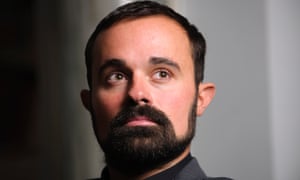Lebedev dinner with Mohammed bin Salman raises questions over Saudi links
Independent owner hosted Saudi leader in London last year
Evgeny Lebedev, the owner of the Independent and the Evening Standard, hosted a private dinner for the Saudi crown prince, Mohammed bin Salman, raising further questions about the media mogul’s links to the de facto ruler of the Middle Eastern kingdom.
Lebedev’s news outlets are being investigated due to public interest concerns over a mysterious Saudi investment made through a web of offshore bank accounts, with the UK government suggesting that the Independent and Evening Standard are now part-owned by the Saudi state. The culture secretary, Nicky Morgan, has until Friday to decide whether or not to appeal against a court ruling that the UK government missed a deadline to intervene in the deal.
The revelation that Lebedev had a personal relationship with Prince Mohammed raises further questions about the connections between the two men. Multiple sources told the Guardian that the young Saudi prince had taken time out of his brief state visit to London in March 2018 – when he was hosted by the then prime minister, Theresa May, and the Queen – to spend time with the Russian oligarch’s son, who is thought to have hosted the dinner at his house in the grounds of Hampton Court Palace.
Leading business and media figures were also in attendance at the event, including the Virgin co-founder Richard Branson, whose spokesperson confirmed his attendance, saying: “Richard went to dinner as he was invited by Lebedev, who he knows well. At that time Virgin was discussing an investment with the [Saudi national investment fund] PIF in Virgin Galactic, which was later called off by Richard. The dinner was a personal one and not focused on business.”
Lebedev’s spokesperson declined to comment on the dinner but insisted the Saudi crown prince had no personal role in arranging the disputed investments in the London-based news outlets. At this time Prince Mohammed was still attempting to project a modernising image of his country, work that would be largely undone later that year when he was implicated in the murder of the journalist Jamal Khashoggi.
Questions remain over why a Saudi state bank decided to buy a 30% stake in two British news outlets and how the deal was arranged. Multiple sources told the Guardian the Independent chairman, Justin Byam Shaw, had previously claimed he had discussed the initial Saudi investment with the former prime minister Tony Blair in 2017.
Tony Blair’s Institute has since received millions of pounds from the Saudi Research and Marketing Group – a state-controlled media business which now runs a Saudi franchise of the Independent – while Saudi sources also said Blair had met Prince Mohammed later that year.
Both Lebedev’s spokesperson and Blair denied that the former Labour prime minister was an adviser on the investment. However, neither side would comment on claims that Byam Shaw had informally met and discussed the deal with Blair in 2017.
A spokesperson for Blair said: “As we have said before when asked about this, Mr Blair was not an adviser on the media investment into the [Independent’s parent company] ESI. The donation to the institute was specifically for the work it does in Africa and on co-existence programmes. The institute works in the Middle East and so of course from time to time he sees the leadership there.”
Following the Saudi investment, the public relations executive David-John Collins, who sits on the board of the Tony Blair Institute, also joined the Independent as a director. Lebedev’s representatives said the appointment was made at the Russian’s personal suggestion and had nothing to do with Blair.
May’s government unexpectedly launched a formal investigation into whether the Saudi investment in the Evening Standard and Independent should be investigated on public interest grounds, with a court hearing claims that the man originally presented as the main investor, an unknown businessman named Sultan Mohamed Abuljadayel, was merely a frontman for the Saudi state.
The decision to launch an investigation, made in the dying days of May’s leadership, could prove to be a headache for Boris Johnson as he has close links to both Lebedev and the Evening Standard editor, George Osborne, whom he is currently promoting as a possible new boss of the International Monetary Fund.
When questioned about the Saudi investment earlier this year, Osborne insisted the titles retained editorial independence: “The days when British newspapers were owned by British people living in Britain disappeared 50 years ago. It is a reality that newspaper ownership is very diverse in this country.”
The prime minister has separately declined to answer questions from the Guardian about whether he abandoned his security detail to attend parties hosted at Lebedev’s Italian villa earlier this summer.
As a result of the deal the Independent has launched a series of foreign language websites aimed at Middle Eastern audiences. The Independent-branded sites are staffed and run by employees of Saudi Research and Marketing Group – the same company that later funded Blair’s institute. Some of the journalists producing the content are based in the Saudi capital, Riyadh, which has one of the lowest rankings for press freedom in the world.
Although the foreign-language Independent sites take some articles from the main English-language websites, London-based Independent employees have noted that stories critical of Saudi Arabia often fail to be translated. Lebedev’s spokesperson said they were aware of concerns from some UK staff but noted the overseas sites “are licensed properties” not directly under their purview.

No hay comentarios:
Publicar un comentario